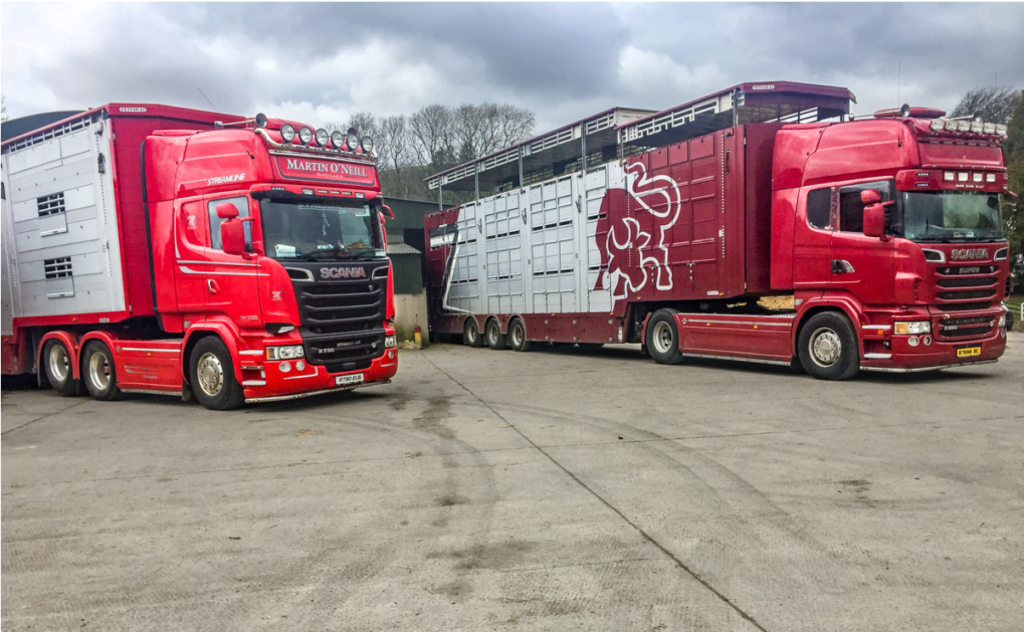“No one has a crystal ball to predict the future for beef in 2021,” according to Brendan Golden, the Irish Farmers’ Association’s (IFA’s) National Livestock Committee chairman.
Following what has been a rollercoaster of a year for not only farmers, but everyone globally, having a positive reflection on the year just gone can be difficult for a lot of people.
Nevertheless, AgriLand interviewed Brendan to get his view on the year of 2020 gone past and what can farmers expect from the new year of 2021, as Brexit casts its shadow.
Beef trade for 2020
For the past few weeks, beef price has been achieving more than 20c/kg ahead of last year’s quotes.
Commenting on the increase in prices achieved by beef farmers this year in factories, Brendan explained:
“Considering the way the markets were affected by the impact of Covid-19, one positive outlook is that the channels for our beef exports remained open and farmers were able to negotiate a price which is improved from last year’s offerings.
However, this isn’t to say that the beef sector is viable at the minute, we are still very much in survival mode.
In terms of kills this year, processors are reporting a yearly kill which is exceeding 1.7 million head up to the middle of December 2020. This additional kill can be attributed to a number of factors, according to Brendan:
“It is expected that the kill figures for this year will reach close to 1.8 million head, simply because farmers have been targeting to finish their cattle in December of this year, rather than holding out until January 2021.
“These farmers saw the threat of Brexit coming and decided that maybe this is the safest thing to do.
In terms of specification, the Angus and Hereford-bred cattle really were the star pupils this year when it came to killing cattle. Farmers were able to achieve a higher price with a 15c/kg or 20c/kg breed bonus.
“The factories seemed to be quite adamant on purchasing these types of cattle, because they are producing the smaller cuts that some markets are demanding.”
Speaking on bull beef finishing systems, which have continued to take a hit during 2020 with an annual decline of 68,704 head recorded by mid-December 2020, he stated:
“Some farmers have gotten penalised with price and weight limits for bulls too many times in recent years and they simply can’t keep going back for more. Finding processors to take heavy bulls was another issue.
“Farmers have changed to the steer system simply to meet market demand.”
Review of marts
Brendan was quick to highlight what has been a very challenging year for marts around the country, especially with the impact of Covid-19 adding additional costs in order to comply with the restrictions.
He said: “The online systems really saved the day for marts and farmers this year. It provided them with a way of continuing trading operations and it exceeded all expectations.
“In terms of trade, store cattle were remarkably resilient all year – which was majorly boasted by additional exports to Northern Ireland customers.
“Overall this year, we have seen an increase in market prices – but we can’t really base any comparison judgement from what happened last year because the market was very depressed.”
Retaining our export markets
Obviously, the retention of the our main live export markets will be critical going forward for next year. Brendan added to this by stating:
“We are strongly behind exporting as much cattle as possible. We need to have as many exporters buying cattle as it increases our custom at ringside and it really is the only viable competition we have compared to slaughtering them.”
With exports to major markets such as the Netherlands this year suffering a decline, it was questioned how the markets will fare the coming spring of 2021. Brendan commented:
Looking forward with the calf markets – Covid-19 and the effect of a vaccine is going to play a major role in the appetite of buyers in the veal market and the re-opening of the food service sector.
“Calves that will be bought for export to the veal market in the spring time, won’t be coming onto the stream for slaughter until the autumn.
“The big question is: Will foreign buyers purchase these calves, feed them and hope that the food service will get back up and running by the autumn?”
Impact of Brexit
With the news of a Brexit deal emerging on Thursday (December 24), it was certainly welcomed by the agri-food sector as the threat of heavy tariffs on Irish beef exports to the UK has eased.
However, this is not to say that the beef sector is going to avoid being affected by Britain leaving the EU.
Brendan explained:
No one has a crystal ball to predict the future for beef unfortunately – but if we can get a handle on Brexit and know what we are going to be facing, it would help farmers to make the correct management decisions.
“We certainly hope that the year of 2021 will bring a lot more positivity for beef farmers,” he concluded.



